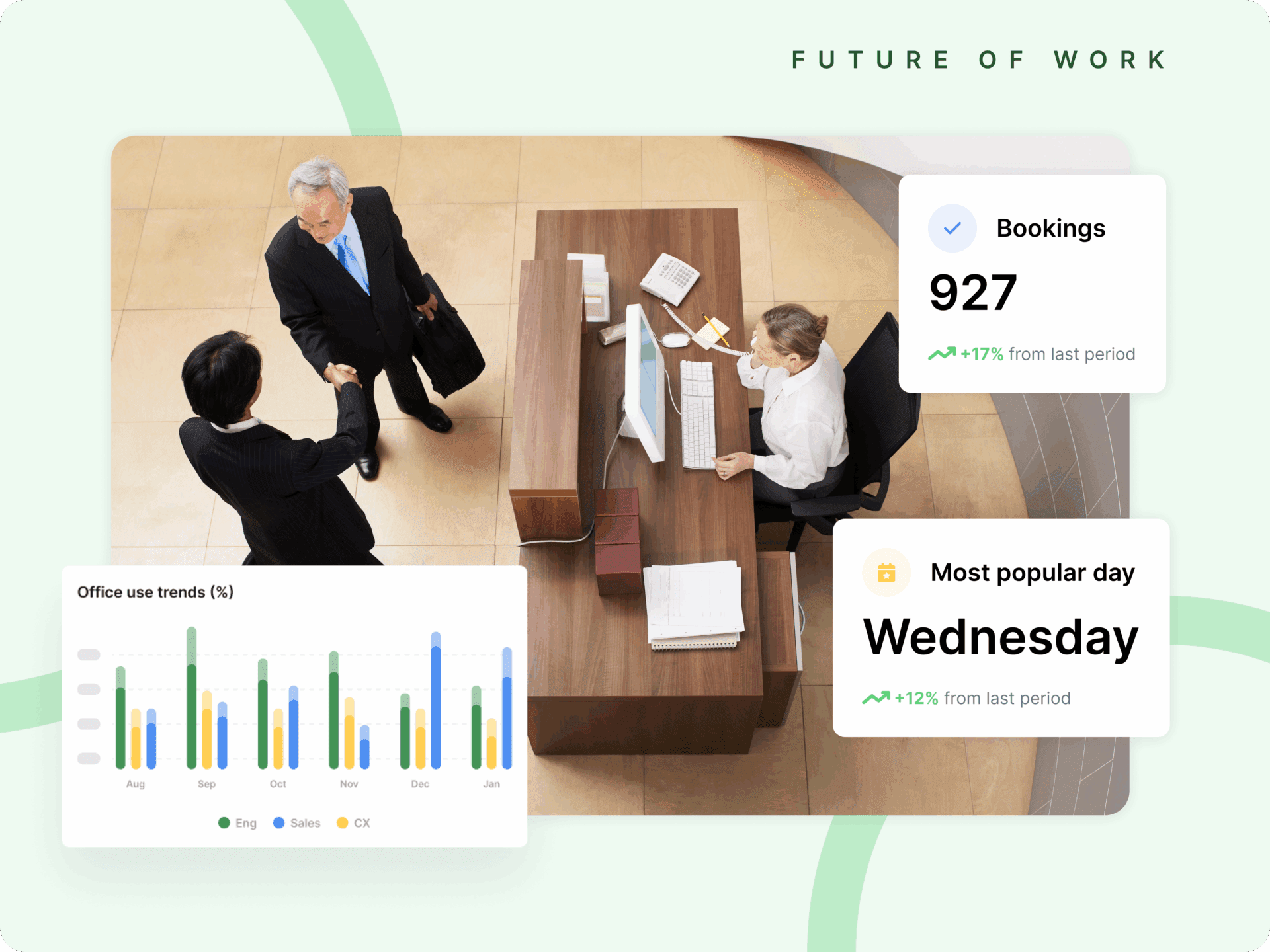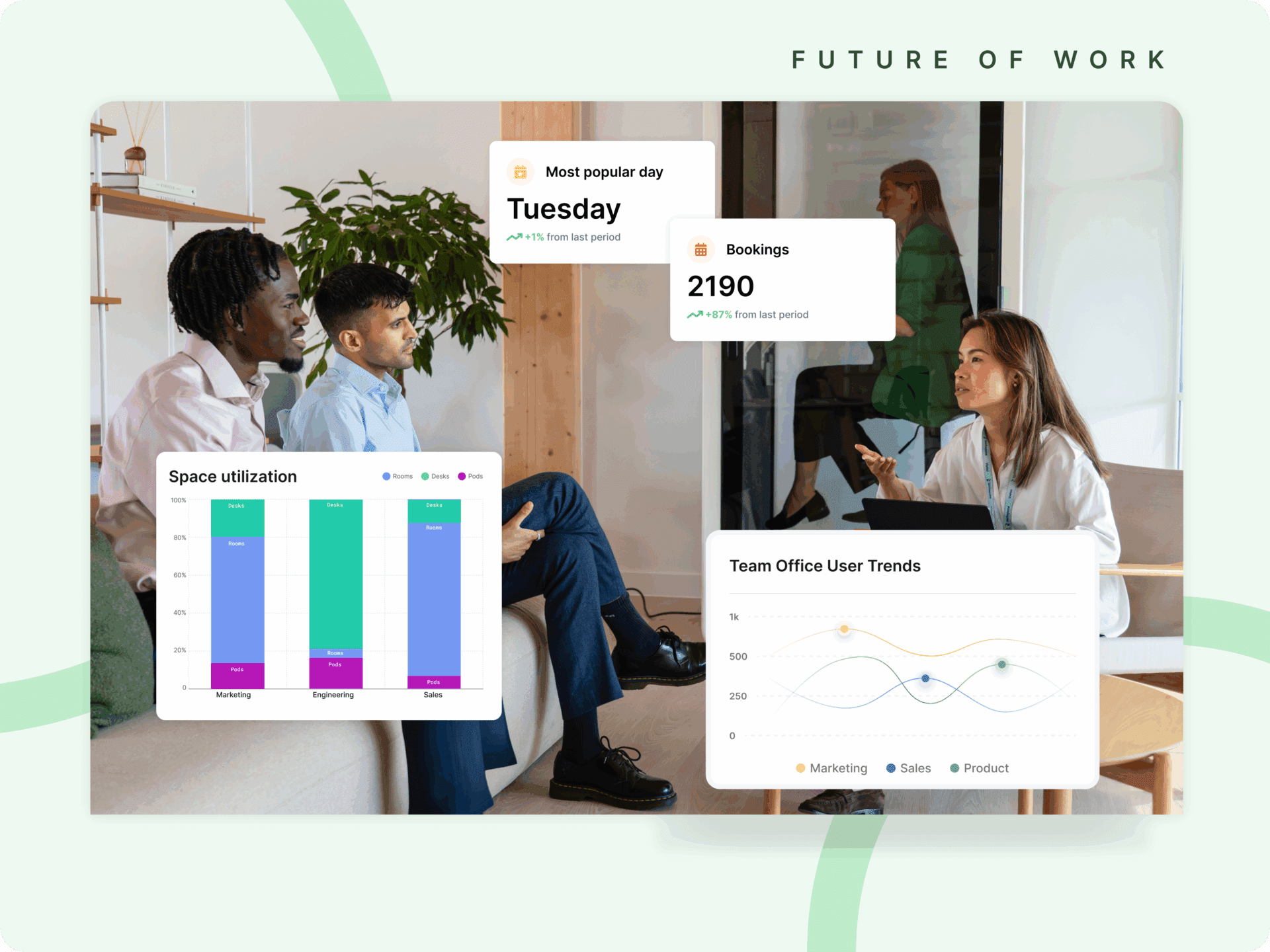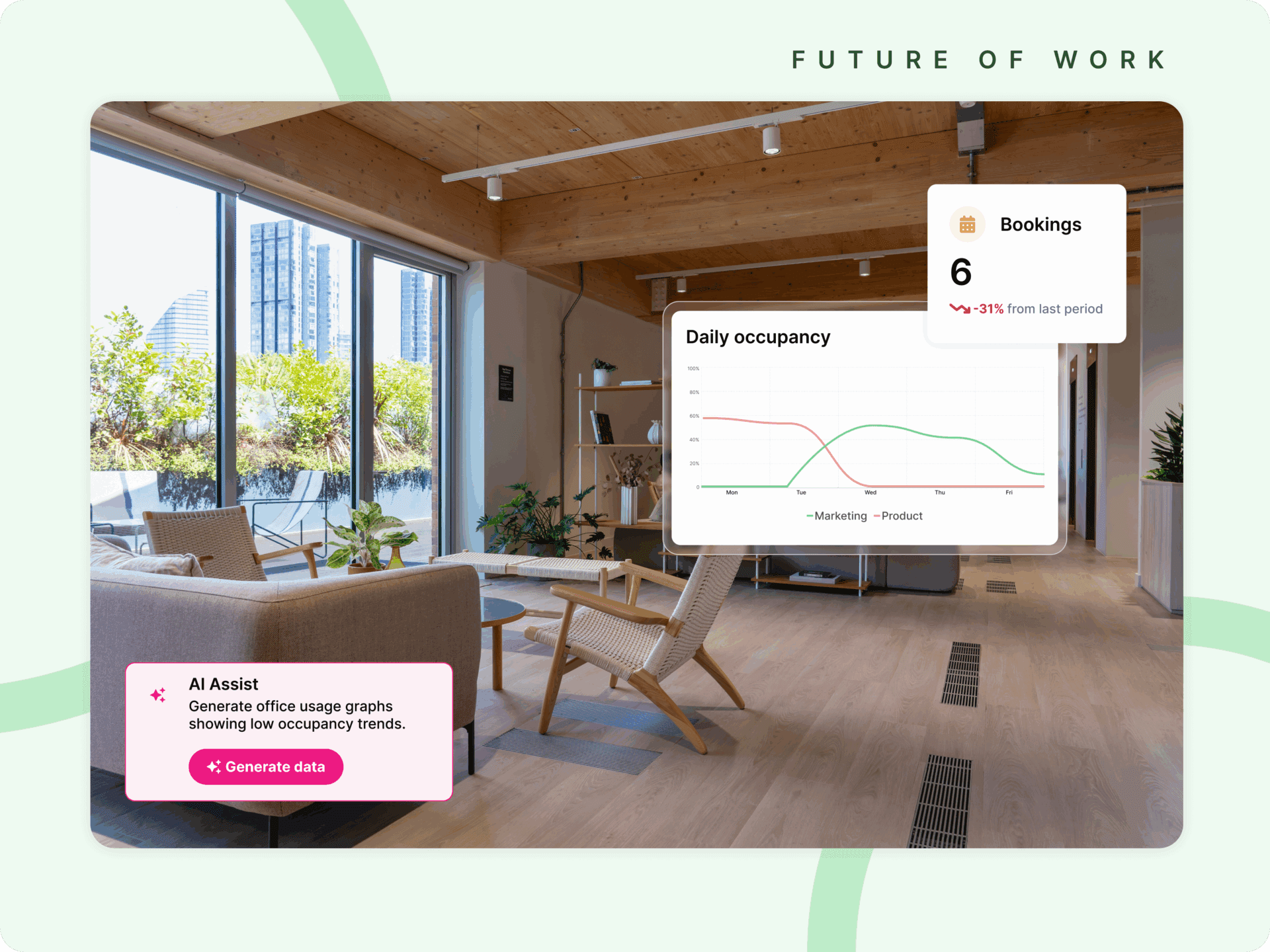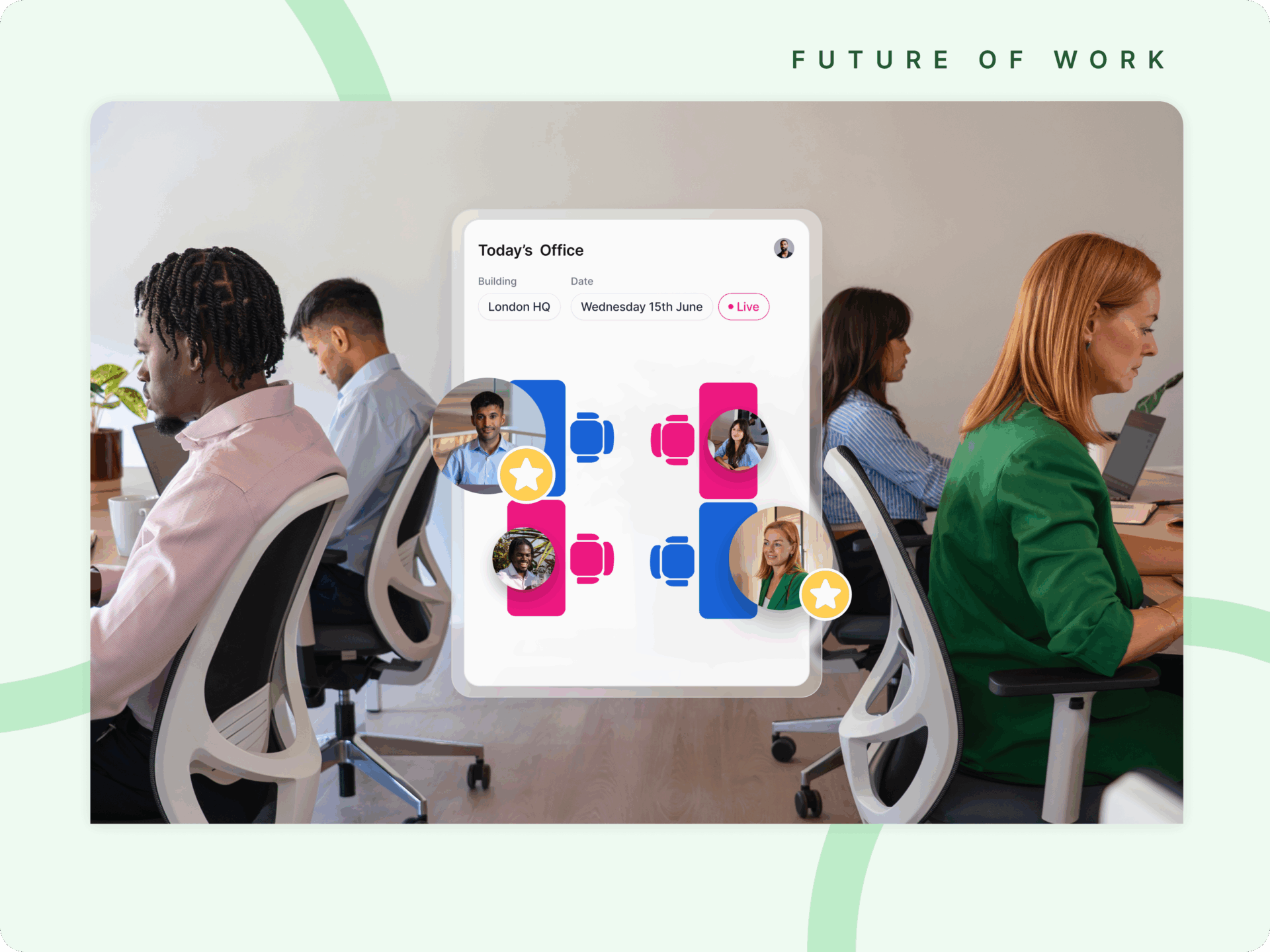Law and consulting firms are not drifting back to the office. They are choosing it. Kadence data shows this sector leading all industries for office bookings, with Europeans and Americans typically in the office two to three days a week, concentrated Tuesday to Thursday.
The UK picture is sharper. ONS data shows 28 percent of workers across Britain use hybrid patterns, but legal firms are far ahead of that average. Gowling WLG now requires staff to spend at least 60 percent of their time in the office. BigHand reports that over half of UK firms operate inconsistent hybrid policies between lawyers and support staff, creating friction and morale issues.
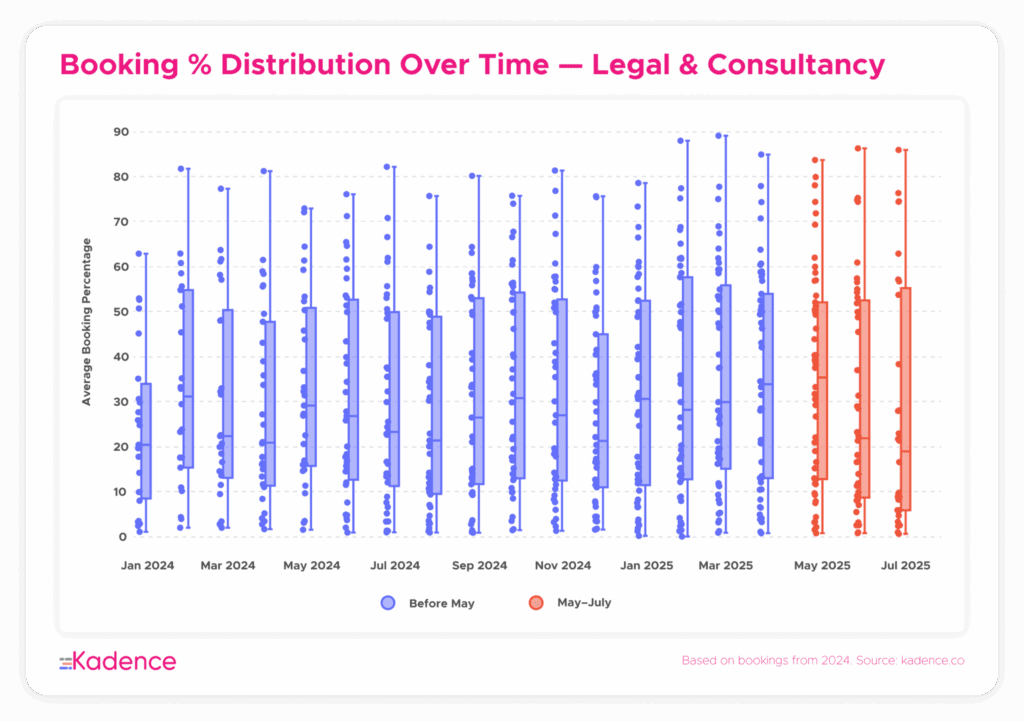
Since January 2024, legal bookings have risen month after month. The upper quartile of legal buildings has pushed past 50 percent utilisation. Even the Christmas dip was shallower than in other sectors. The intent is strong. The challenge is whether those office days are being orchestrated as part of a system.
Time Is The Product
In law, every minute matters. When war rooms are double booked or meetings collapse at the last minute, the costs are measured in billable hours.
Kadence brings order by centralising bookings inside Outlook and Teams, and feeding real utilisation data into our Insights dashboard. Leaders can see where meeting failures occur and adjust their room strategy so the right spaces are always available.
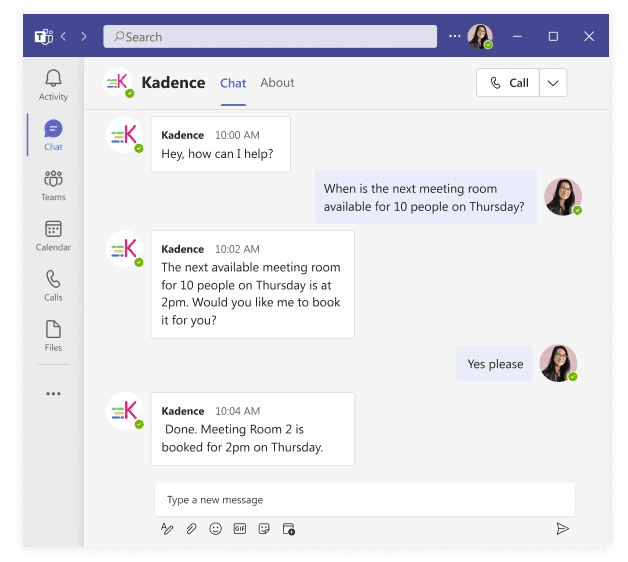
Manual Reporting Creates Blind Spots
Practice heads need to know which offices are under pressure, where floors are underused, and how meeting performance varies by practice group. Chasing spreadsheets will not cut it.
Kadence Insights Plus delivers customized dashboards so leaders can see utilisation and failure rates without manual collation. It turns operational noise into strategic clarity.
Confidentiality Cannot Slip
Accidental overlap between rival case teams is not just inconvenient. It is a compliance failure.
Kadence enforces ethical walls with booking rules and neighborhoods that keep practice groups separate while keeping the experience simple for users.

Unpredictable Attendance Wastes Space
Partners may be in three or four days a week. Associates rotate. Support staff often follow different rules. Without visibility, firms cannot plan capacity with confidence.
Kadence makes presence visible. Kadence gives firms a clear picture of how their offices are really being used. Colleagues can see when their teams are present, leaders understand the gap between planned and actual attendance, and offices can be scaled to meet genuine demand rather than guesswork.
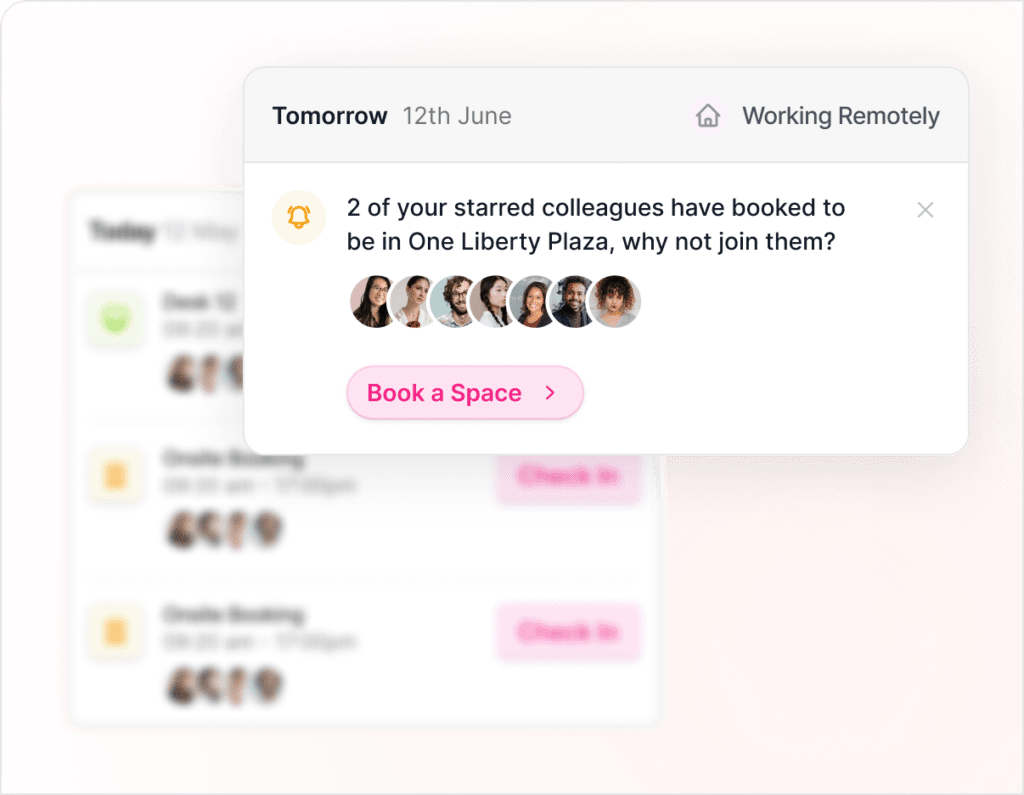
Client Experience Begins At Reception
A client’s first impression starts at the front desk. Manual NDAs and unclear host notifications leave VIPs waiting.
Kadence visitor management streamlines check-in, digitises compliance paperwork, and alerts hosts instantly. Reception becomes part of the service standard.
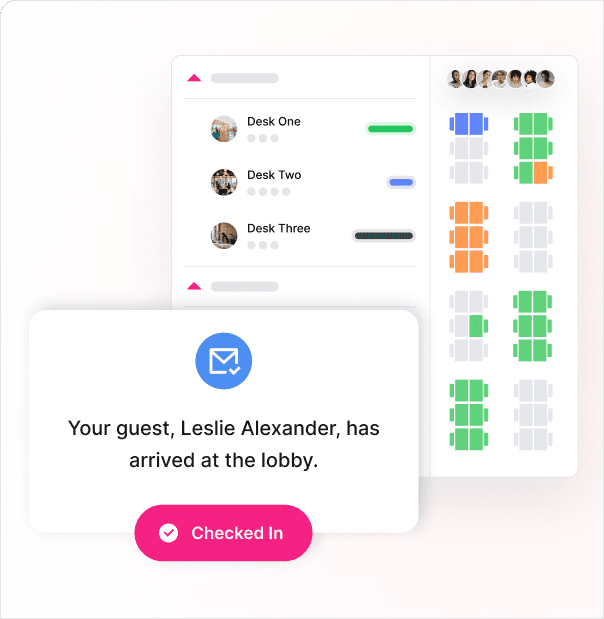
Outlook And Teams Conflicts Break Flow
Recurring series, calendar edits, and device failures create friction when meetings should flow.
Kadence reduces that friction by bringing desk and room booking directly into Microsoft Teams. Teams members can reserve spaces from inside an app they already use. Recurring series show up correctly. Moves or cancellations sync immediately. When check-in doesn’t happen, reminders trigger and under-used rooms become available again. In practice that means fewer surprise conflicts, fewer “meeting room not set up” moments, and more time for the real work.
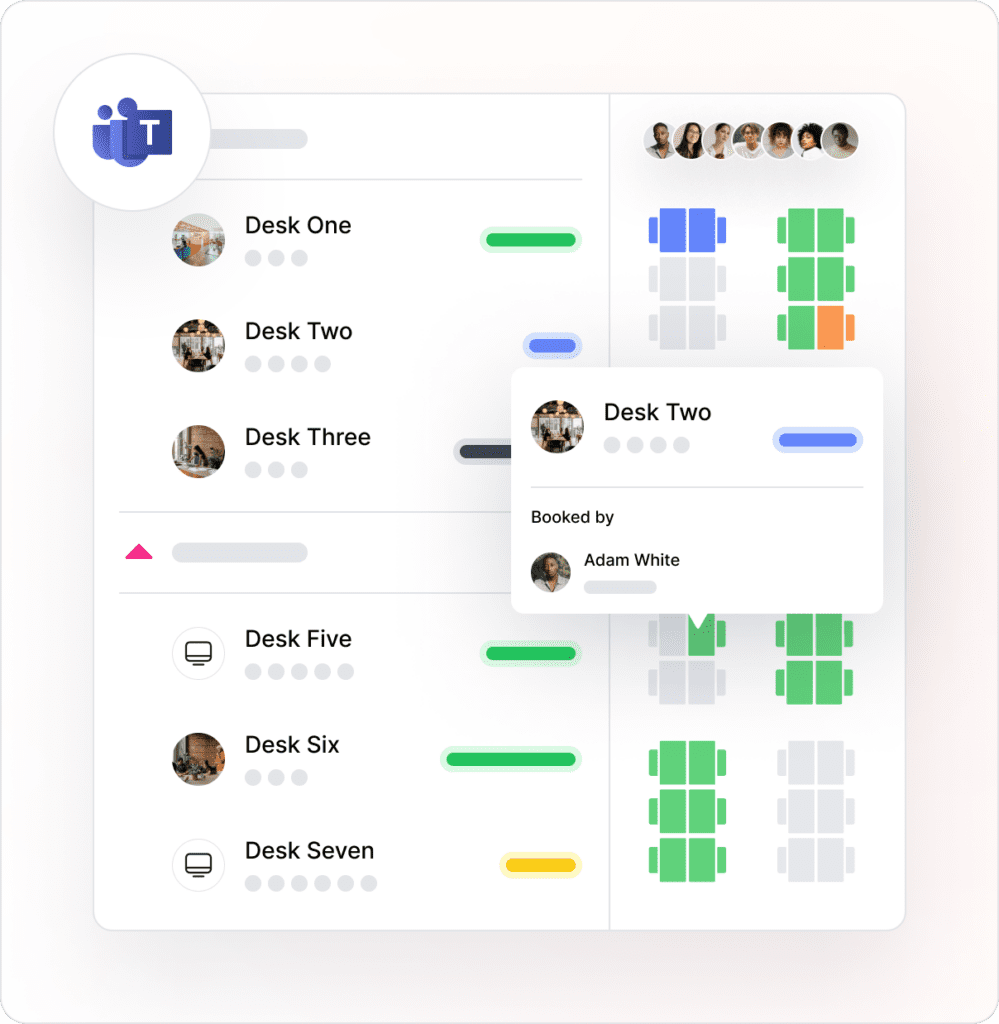
Multi-Office Complexity Requires Consistency
Partners may spend Monday in London and Wednesday in Manchester. They expect a consistent experience.
Kadence unifies those moving parts. Booking rules, neighborhoods, and space policies are standardised across offices in one platform. A partner arriving in Manchester sees the same familiar interface they used in London. Parking, visitor check-in, and desk reservations follow the same playbook. Facilities teams get cross-site data in one view, making it easier to anticipate demand and spot underused space. The effect is to take geography out of the equation: offices feel different in architecture but identical in experience.
Change Management Shapes Culture
Legal professionals expect white-glove experiences. High staff turnover makes training new tools a constant challenge.
Because Kadence lives inside Microsoft Teams, there is no new portal for staff to learn. Check-ins, bookings, and visitor notifications slot into the systems people already use every day. Administrative tasks are automated where possible, so front-of-house and facilities staff spend less time fixing errors. The goal is not just to deploy another tool, but to embed a system that feels invisible and one that reinforces the firm’s culture of efficiency rather than undermining it.
The Real Opportunity For UK Law Firms
UK law firms are already using the office more than any other sector. The best-performing buildings are running at over 50 percent utilisation. They prove what is possible when workplace operations are orchestrated.
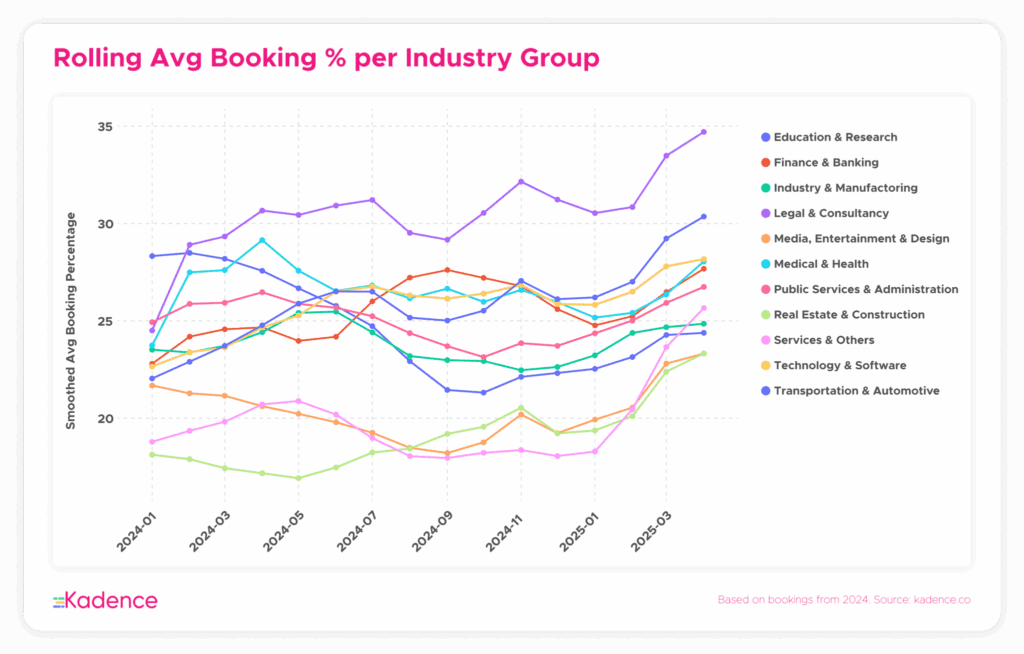
The question is not whether people are coming in. They are. The question is whether those office days work as hard as the people in them.
The firms that succeed will run their workplace like an operating system. One platform for people, space, and client experience. A system that protects billable time, upholds compliance, and delivers the service standards clients notice.
Kadence is the workplace operations platform built for that future. Book a demo with our workplace operations experts to see Kadence in action.


